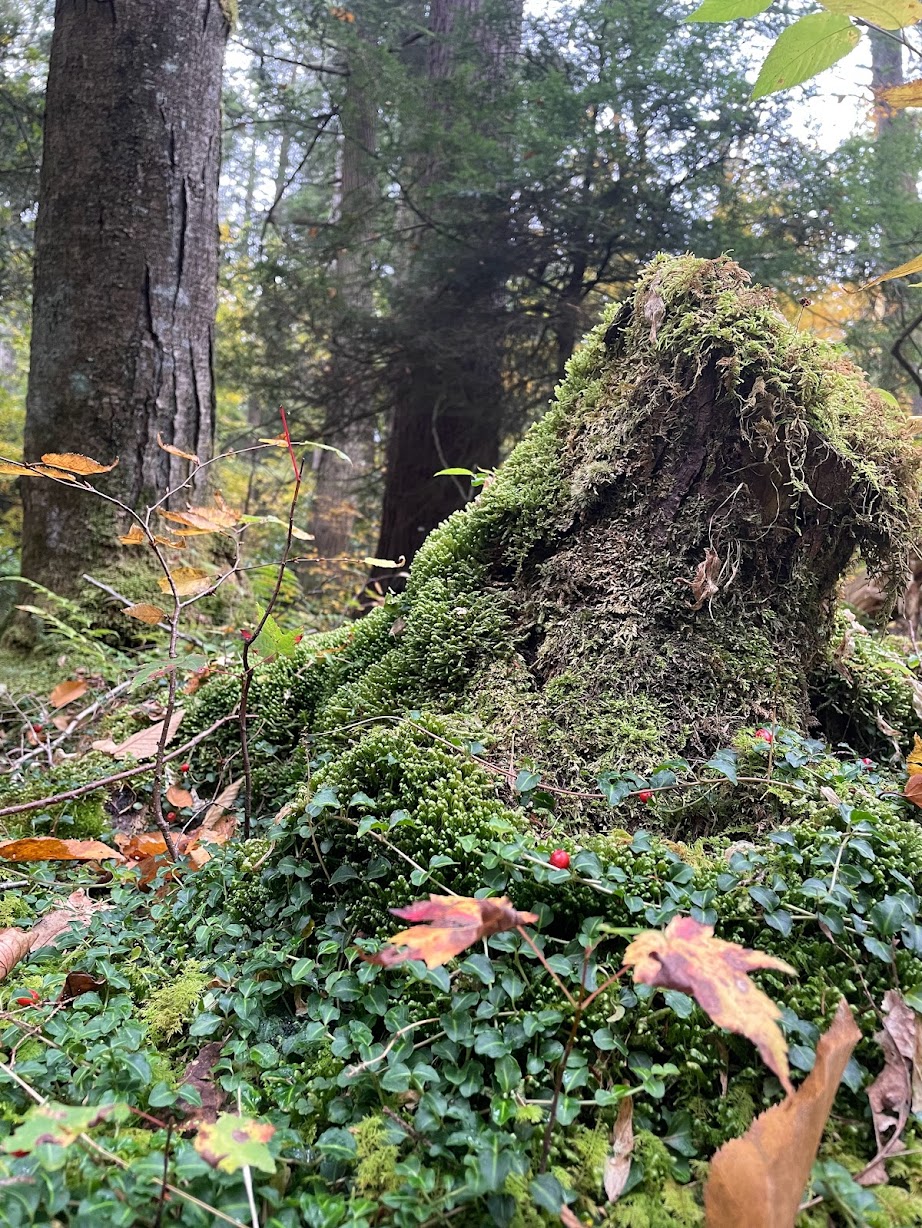
“The love for God and neighbor was the characteristic of the first Christians. This love was expressed through the daily practice of the Works of Mercy. To feed the hungry, to clothe the naked, to shelter the homeless, to instruct the ignorant at a personal sacrifice.”
-Peter Maruin, Easy Essays
I was in graduate school when Pope Francis published Laudato Si, his letter about Caring for our Common Home in the midst of ecological challenges. It was a great encouragement to me at the time because I was learning about soil degradation, climate change, and the whole host of accelerated problems that farmers are facing worldwide. I had only joined the Catholic Church a few years ago at that point, and it was so encouraging to hear the leader of my church addressing the severity of the ecological crisis, but doing so with an attitude of faith and hope.
A year later, in 2016, Pope Francis announced something that not as widely known but I believe will have an even deeper impact on the history of the Catholic Church. Pope Francis proposed “care for our common home,” or integral ecology, as a new Work of Mercy. This blew my mind! In the midst of what seemed like an ordinary speech, the Pope introduced substantial change to Catholic theology, which typically changes at a glacially slow pace.
For those that are not familiar with the Works of Mercy, the Catholic tradition has taught seven spiritual and seven corporeal (or bodily) works of mercy for hundreds of years. They were first enumerated as sets by Thomas Aquinas in the thirteenth century, but they are all based on the Bible. The Corporal Works of Mercy come mostly from the parable of the Sheep and the Goats in the Gospel of Matthew (which we talked about in the last blog post on material and spiritual poverty). The Spiritual Works of Mercy come from various passages in the New and Old Testament. The corporal works include feeding the hungry, giving drink to the thirsty, clothing the naked, harboring the homeless, visiting the sick, ransoming the captives, and burying the dead. The spiritual works include instructing the ignorant, counseling the doubtful, comforting the sorrowful, reproving the sinner, forgiving injuries, bearing with those who trouble and annoy us, and praying for all (ST II-II, Q 32, A 2).
What is merciful about caring for our common home? Shouldn’t our neighbors, and not the earth, be the objects of our mercy?In his September 1, 2016 address, Pope Francis explains: “We usually think of the works of mercy individually and in relation to a specific initiative: hospitals for the sick, soup kitchens for the hungry, shelters for the homeless, schools for those to be educated, the confessional and spiritual direction for those needing counsel and forgiveness… But if we look at the works of mercy as a whole, we see that the object of mercy is human life itself and everything it embraces.”
In the Gospel of Luke, a lawyer asks Jesus, “Who is my neighbor?” When Jesus responded with the parable of the Good Samaritan, he expanded the concept of neighbor to include anyone we might encounter, even those considered enemies. Until the last few hundred years, most people had a local sphere of influence. It was sufficient to love your immediate neighbor as yourself. But in our globalized economy, we purchase products and participate in systems that affect our brothers and sisters in the farthest reaches of the planet, most of whom we will never meet. In proposing care for our common home as a work of mercy, Pope Francis is inviting us to expand our concept of neighbor yet again.
One example of the importance of caring for our common home as a work of mercy is the harm caused by agricultural pesticides, not just for those who consume the food, but for those who work in the fields. Some people buy organic produce primarily to avoid exposure to pesticides, and for that reason they prioritize certain crops, like strawberries, to buy organically because they have higher levels of pesticide residues. Bananas, on the other hand, have a thick peel, so pesticide exposure is lower if you’re eating bananas that have been chemically sprayed. What people with this mindset don’t consider is that the skin of the people working on the banana plantations isn’t any thicker than that of the workers in the strawberry fields. When I did an internship at a non-profit in Panama, I heard stories from farmers and workers who suffered from cancer after working for the larger banana plantations. I remember one story in particular of a man who died young because he was the one who waved the flag on the ground to signal where planes should spray, and his only protection from the spray was to duck under the flag. This is just one of many examples of how interconnected everything is, and how one small choice, like buying organic bananas, can nudge the food system in a direction that reflects a deeper care and respect for our brothers and sisters around the world.
Furthermore, Pope Francis introduced this new work of mercy as a ‘complement’ to the traditional sets. This word comes from the Latin complere, which means to fill up, or to complete. In a sense, care for our common home is the seed-bearing fruit of the other works of mercy. The other works of mercy can’t be completed without it because God’s creation is the very medium through which we interact with and care for our neighbors. We cannot feed the hungry if our topsoil is eroded. We cannot give drink to the thirsty if we pollute our water. We cannot welcome the stranger if our house is in disarray. We cannot counsel the doubtful among the next generation if by our wasteful lifestyles we leave them a damaged earth less able to reflect the glory of the Creator (Romans 1:20).
Finally, Pope Francis explained that care for our common home is both corporal and spiritual in nature. Given that we started with fourteen, does this mean that we now have a total of fifteen, sixteen, or somehow still fourteen works of mercy? Regardless of how you choose to enumerate them, there are many ways to practice this new work of mercy in daily life.
Living on a farm provides abundant opportunities to practice caring for our common home as a corporeal work of mercy. Some of these include farming organically, removing invasives, planting native vegetation, providing spaces for animals and humans to thrive. We practice caring for our common home as a spiritual work of mercy when we prioritize making time for visitors to come to the farm, see the animals, work in the soil, and walk through the woods. God speaks through these experiences.
Taking good care of our common home helps us practice the other seven corporeal works of mercy as well: We feed the hungry by donating and offering produce on a sliding scale. We give drink to the thirsty by using aquatic plants to filter the water that runs through our pond and into the Prettyboy Reservoir. We clothe the naked by keeping a collection of shoes and coats in the mudroom available for volunteers and other visitors who may not have dressed for the weather. We harbor the homeless whenever we can by hosting people who are between jobs or trying to take a break from “normal” life and want to experience the satisfying work of manual labor in the context of a community. We visit the sick by providing healing opportunities for those with mental health issues. We ransom the captives who feel trapped and overworked by stressful jobs in healthcare, education, or industry. We bury the dead whenever an animal dies on our farm, or we encounter a dead bird or rodent, we bury it and say the Saint Francis prayer.
As for spiritual works, we instruct the ignorant by leading educational farm tours. We counsel the doubtful by living out the best example we can of Christian life for our volunteers and visitors. Many a good spiritual conversation can arise from weeding a long row of beets or onions. We comfort the sorrowful by sharing our own joys and sorrows with our guests. We reprove sinners as gently as possible when problems within our community arise, acknowledging that we are all sinners. We forgive injuries when people make mistakes. We bear with those who trouble and annoy us when we welcome people who are struggling with life and can’t always be their best selves. And we pray for all when we practice ten minutes of silent prayer each morning, and we invite anyone who is living with us to join. Something wonderful about the works of mercy is that they are such a simple and accessible way to live out our faith.

